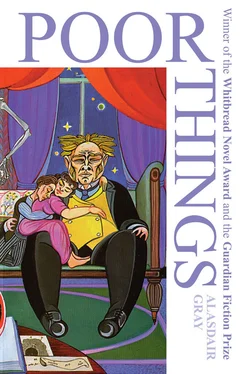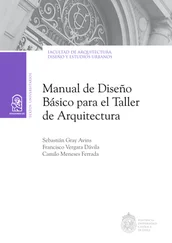“Notice, McCandless,” said Baxter at this point, “that the fellow writes as you talk when you are drunk.”
I must try to write calmly. Exactly a week ago I crouched in the corner of a stationary carriage with Bella on the platform outside, chattering to me through the window. She was bright and beautiful as ever, with a fresh expectant youthfulness which seemed wholly new, yet hauntingly familiar. WHY was it familiar? Then I remembered Bella had looked exactly like that when we first became lovers. And now, with every appearance of kindness (for it was I who had said we must part) she was discarding me like a worn shoe or broken toy, having been RENEWED by someone I had never seen, someone she must have glimpsed that very morning, for we had arrived in Paris from Marseilles only six hours before. In those six hours she had met nobody, spoken to nobody but me and the manageress of our hotel — I had been beside her the whole time, apart from my visit to the nearby Cathedral which took thirty minutes or less — yet in that time she had fallen in love anew! All things are possible for a witch. Suddenly she said, “Promise when you get to Glasgow that you tell God I will soon want the candle.” I promised, although I thought the message gibberish — or more witchcraft. This letter discharges that promise .
Why, having discharged it, am I gripped by an urge to tell you more, tell you all? Whence this hunger to disclose to YOU, Mephisto Baxter, the innermost secrets of my guilty and tortured heart? Is it because I believe you already know them?
“Catholicism just might restore his sanity,” muttered Baxter. “Lacking the rites of the confessional he will seize any excuse to blether out his second-hand, second-rate sentiments to anyone.”
Did you see at the Theatre Royal two years ago Beerbohm-Tree’s production of She Stoops to Conquer by that greatest of Irishmen, Oliver Goldsmith? The hero is a bright clever handsome gentleman, liked by his companions, favoured by the elderly, attractive to women. He has but one defect. He is only at ease with women of the servant class. Respectable women of his own income group make him feel frigid and formal, and the more beautiful and pleasant they are the more awkward and incapable of loving them he feels. My case entirely! As a child I took it for granted that only women who worked with their hands would not find the natural Duncan Wedderburn a disgusting creature, and the result of this was that working women became the only class of female who attract me. As an adolescent I thought this proved me a kind of monster. Will you believe me when I say, that on entering University I discovered that TWO-THIRDS of the students felt exactly as I did? Most of them conquered this instinct to the extent of marrying respectable women and getting children by them, but I doubt if they are truly happy. My instincts were too strong for that, or perhaps I was too honest to live a lie. Goldsmith’s hero is eventually saved by a beautiful heiress of his own class who wins him by dressing up and talking like her maid. Alas, no such happy ending is possible for a Glasgow solicitor in the nineteenth century. My love life was below the stairs and behind the scenes of my professional life, and in these cramped surroundings I enjoyed the ecstasies and obeyed the moral code enjoyed, preached and practised by Scotland’s National Bard, Rabbie Burns. As I told each panting fair one I would love her for ever I was perfectly sincere, and indeed, I would have married every one of them had the social gulf between us not forbade this. My few poor bastard bairns (excuse the Scotticism, but to my ear the word bairns has a truer human warmth than babies or children ) my few poor bastard bairns (fewer than the number of your fingers, Mr. Baxter, for my precautions prevented a great many) my few poor bastard bairns were never uncared for. Every one went into the charitable institution of my friend Quarrier. You know (if you read The Glasgow Herald ) how that great philanthropist fosters such tender unfortunates, then ships them to Canada where they are put to good domestic agricultural use on the expanding frontier of our Empire in the North. Nor did their mothers suffer. No delicious scullions, tempting laundry manglers, luscious latrine scrubbers ever lost a day’s work by dallying with Duncan Wedderburn, though the shortness and irregularity of their free time meant I had to court several at once. Basically innocent despite my wicked ways — fundamentally honest underneath my superficial hypocrisies — such was the man you introduced to your so-called niece, Mr. Baxter .
AT FIRST SIGHT I knew this was a woman to whom class distinctions were meaningless. Though beautifully dressed in the height of fashion she looked at me as gladly and frankly as a housemaid who has been tipped half a crown and chucked under the chin behind her mistress’s back. I knew she was seeing and welcoming the natural Wedderburn inside the solicitor. I hid my confusion under a chilly mask which may have struck you as bad manners, but my heart beat so hard that I feared you might hear the pounding. In matters of the heart it is best to be direct. When left with her I said, “May I see you again, soon, without anyone else knowing?”
She looked startled, but nodded. I said, “Is your bedroom at the back of the house?”
She smiled and nodded. I said, “Will you put a lit candle on the sill tonight when everyone else here is in bed. I will bring a ladder.”
She laughed and nodded. I said, “I love you.”
She said, “I’ve got another lad who does that,” and was prattling about her fiancé when you returned, Mr. Baxter. Her guile astonished and excited me. To this day I can hardly believe it .
But though I foolishly believed I had deceived you, I never tried to deceive her. I exposed all my past iniquities more frankly and fully than I have courage and space to do here
(“Thank goodness for that!” muttered Godwin fervently.)
because (blind fool that I was) I believed we would soon be man and wife! I had never before heard of a man-loving middle-class woman in her twenties who did NOT want marriage, especially to the man she eloped with. I was so sure Bella would soon be my bride that, by a piece of harmless chicanery, I obtained a passport on which we were named as husband and wife. This was to facilitate our honeymoon on the continent which I meant to start as soon as the civil contract was signed. And I swear with hand on heart that monetary gain had no part in my determination to turn Bella Baxter into Bella Wedderburn. I admit that your manner when ordering your will made me feel that you were perhaps not long for this world, but I was sure you would at least live long enough to see us return from our honeymoon. The most I expected from you sir, in the financial line, was a small steady allowance enabling me to support Bella in the style she enjoyed with you. A few thousand per annum would easily have done it, and Bella’s way of talking suggested there was no limit to your generosity where she — the woman you pretend to be your niece — is concerned. You must both be laughing heartily at how cunningly you have duped me! For when we boarded the London train on that soft summer evening I had arranged to break our journey at Kilmarnock 13where I had persuaded a local registrar to wait up for us, receive us in his home and unite us. Imagine my consternation when before we reached Crossmyloof she declared she COULD NOT MARRY ME BECAUSE SHE WAS ENGAGED TO ANOTHER!!!! I said, “Surely that is in the past?”
She said, “No — in the future.”
I said, “Where does that leave me?”
She said, “Here and now, Wedder,” and embraced me. She was a Houri, a Mahomet’s paradise. I bribed the guard to give us a complete first-class carriage to ourselves. It was not an express train, so it MUST have stopped at Kilmarnock, Dumfries, Carlisle, Leeds and all stations north of Watford Junction, but I knew only the motion and brief pauses in our pilgrimage of passion. I was man enough for her, but the pace was terrific .
Читать дальше












